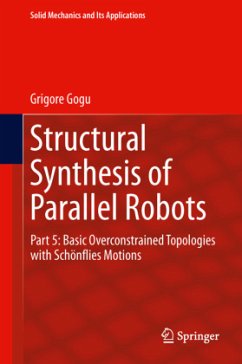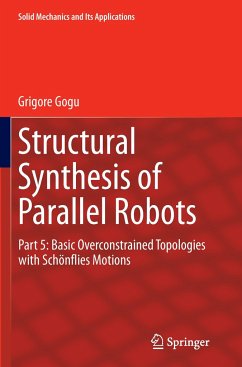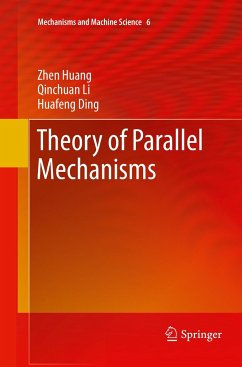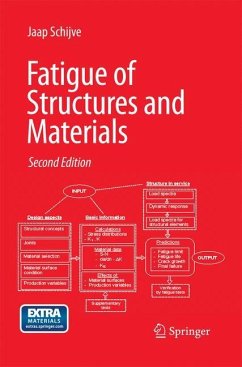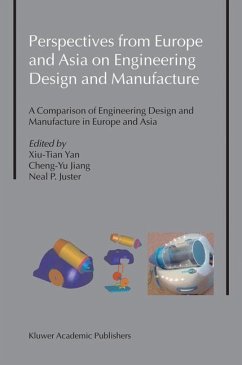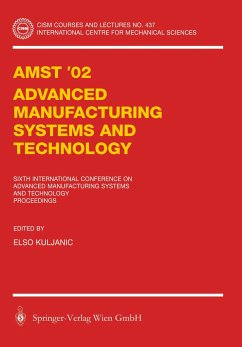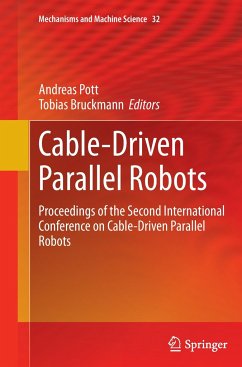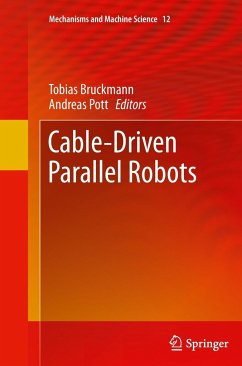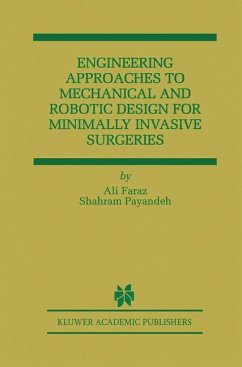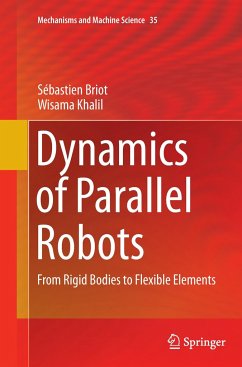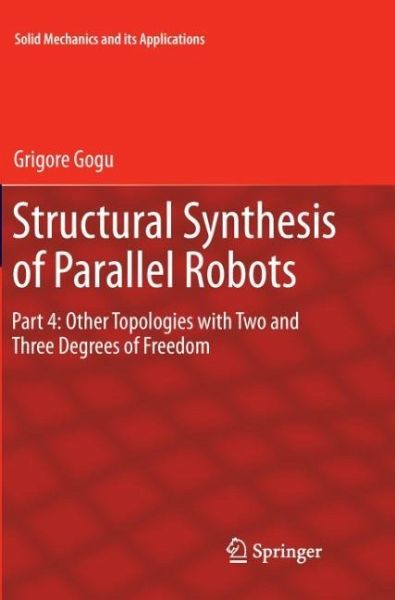
Structural Synthesis of Parallel Robots
Part 4: Other Topologies with Two and Three Degrees of Freedom

PAYBACK Punkte
57 °P sammeln!
This book represents the fourth part of a larger work dedicated to the structural synthesis of parallel robots. Part 1 (Gogu 2008a) presented the methodology of structural synthesis and the systematisation of structural solutions of simple and complex limbs with two to six degrees of connectivity systematically generated by the structural synthesis approach. Part 2 (Gogu 2009a) presented structural solutions of translational parallel robotic manipulators with two and three degrees of mobility. Part 3 (Gogu 2010a) focussed on structural solutions of parallel robotic manipulators with planar mot...
This book represents the fourth part of a larger work dedicated to the structural synthesis of parallel robots. Part 1 (Gogu 2008a) presented the methodology of structural synthesis and the systematisation of structural solutions of simple and complex limbs with two to six degrees of connectivity systematically generated by the structural synthesis approach. Part 2 (Gogu 2009a) presented structural solutions of translational parallel robotic manipulators with two and three degrees of mobility. Part 3 (Gogu 2010a) focussed on structural solutions of parallel robotic manipulators with planar motion of the moving platform. This book offers other topologies of parallel robotic manipulators with two and three degrees of freedom systematically generated by using the structural synthesis approach proposed in Part 1.
The originality of this work resides in the fact that it combines the new formulae for mobility connectivity, redundancy and overconstraints, and the evolutionary morphology in a unified approach of structural synthesis giving interesting innovative solutions for parallel robotic manipulators.
This is the first book of robotics presenting various solutions of coupled, decoupled, uncoupled, fully-isotropic and maximally regular parallel robotic manipulators with two and three degrees of freedom systematically generated by using the structural synthesis approach proposed in Part 1. Non-redundant/redundant, overconstrained/isostatic solutions with simple/complex limbs actuated by linear/rotary actuators with/without idle mobilities are proposed. Many solutions are presented here for the first time in the literature.
The author had to make a difficult and challenging choice between protecting these solutions through patents, and releasing them directly into the public domain. The second option was adopted by publishing them in various recent scientific publications and mainly in this book. In this way, the author hopes tocontribute to a rapid and widespread implementation of these solutions in future industrial products.
The originality of this work resides in the fact that it combines the new formulae for mobility connectivity, redundancy and overconstraints, and the evolutionary morphology in a unified approach of structural synthesis giving interesting innovative solutions for parallel robotic manipulators.
This is the first book of robotics presenting various solutions of coupled, decoupled, uncoupled, fully-isotropic and maximally regular parallel robotic manipulators with two and three degrees of freedom systematically generated by using the structural synthesis approach proposed in Part 1. Non-redundant/redundant, overconstrained/isostatic solutions with simple/complex limbs actuated by linear/rotary actuators with/without idle mobilities are proposed. Many solutions are presented here for the first time in the literature.
The author had to make a difficult and challenging choice between protecting these solutions through patents, and releasing them directly into the public domain. The second option was adopted by publishing them in various recent scientific publications and mainly in this book. In this way, the author hopes tocontribute to a rapid and widespread implementation of these solutions in future industrial products.



